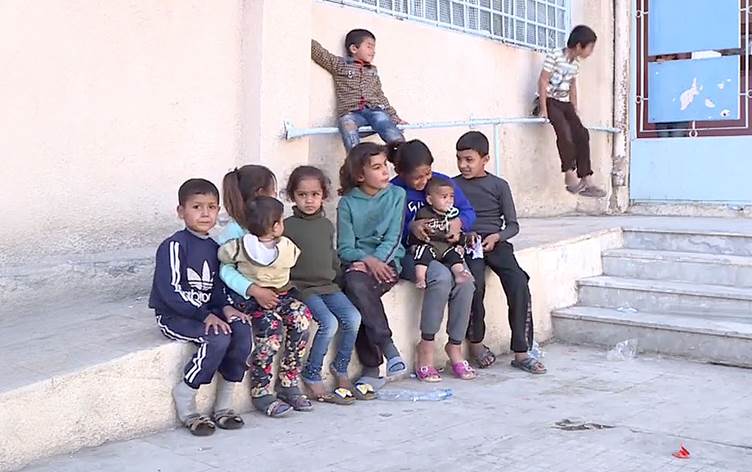HASAKA, Syria —As a result of the Turkish invasion, 28 children have been left without their parents since the beginning of the aggressive attack on October 9.
Most of their parents were killed by Turkish shelling, while some remained in the vicinity of armed groups in Sari Kani(Ras al-Ain) and Gire Spi (Tel Abyad). It is unclear exactly how many children have been orphaned.
The long-threatened Turkish incursion aims to expel Syrian Democratic Forces (SDF) from a 32km-deep stretch bordering Turkey and resettle Arab refugees from elsewhere in the country. The fighting has killed, injured and displaced hundreds of thousands of civilians in what has been dubbed as an ‘ethnic cleansing’ campaign.
Many children are struggling with the loss of both their homes and their families.
Majid, 10, Muhammad, 12, and their sister Rehef, 15, have been separated from their parents since their village was attacked.
They were outside when their village of Ibrahimiyah, south of Sari Kani, was bombed on October 11.
Their parents were at home when they fled to Hasaka with another group.
The children have since been in Hasaka and have had no news of their village or their parents.
“We left with the elderly. A car came and we went to the sheikh’s house. We came from the sheikh’s house. We didn’t know anything,” Mohammed said.
“I long for my mother, my siblings and my home. I miss school too,” Majid added.
The Kurdish Self-Administration of Northern Syria has recorded the names of 150,000 migrants from Sari Kani and Gire Spi, including 28 children with no parents. They are still trying to reunite the children with their families.
“In Hasaka so far we’ve seen 28 children with no parents, because the situation is exceptional and complex. They have not been provided with the assistance they need but efforts to find their relatives have continued,” said Khalil Ibrahim, Administrator of the Humanitarian Organizations Affairs Office in Hasaka.
The number of migrant children has now exceeded 45,000. Many of them are emotionally vulnerable, and mental health services are rarely available.

